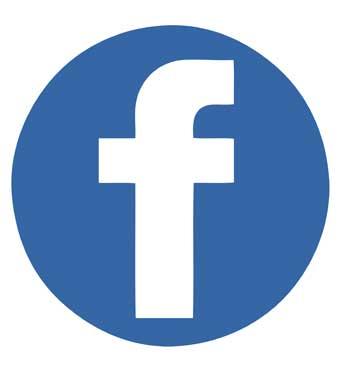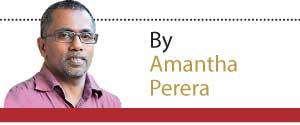Reply To:
Name - Reply Comment
Just the tip of the iceberg
- The digital drama showcased how social media was not only the main purveyor for information on the incident
- During a public webinar just before elections he said that there was indication of suppression of content
What happened over August 6 night as ballot counting reached its conclusion in Jaffna is testament to the growing influence of social media during an electoral process. As  the counting neared the end, the accusations started flying, a daughter of one candidate accusing another of rigging the preferential votes. The allegations were stark, no surprise there. But where they moved was new. They were placed on Facebook as public posts. This continued into the next day with both parties using Facebook as the
the counting neared the end, the accusations started flying, a daughter of one candidate accusing another of rigging the preferential votes. The allegations were stark, no surprise there. But where they moved was new. They were placed on Facebook as public posts. This continued into the next day with both parties using Facebook as the
main platform, even including videos.
Then suddenly one of the Facebook pages, the one where the main allegations of rigging had initially appeared, suddenly disappeared. It appeared to have been taken down, the profile was not accessible, and it went quiet. But by then the posts had been shared hundreds of times on Facebook and other platforms.
The digital drama showcased how social media was not only the main purveyor for information on the incident but also how it had become the go-to source of choice when in need for wider public awareness. It was live personal commentary. Something that could not have been possible if not for the platform. But it also showed that unless you have your side of the story watertight, it is impossible to erase what was put up. Despite the Facebook profile being taken down, screen shots of the posts, those that were deleted, were still circulating.
"Over 33,000 ads totalling a staggering over $591,000 had been distributed through Facebook. Of the over $255,000 was spent on the Western Province. The next highest was Central Province with a distant $48,000"
The Facebook Ad-library tool that was made available for Sri Lanka during this election, showed that over 33,000 ads totalling a staggering over $591,000 had been distributed through Facebook. Of the over $255,000 was spent on the Western Province. The next highest was Central Province with a distant $48,000.
It would take more analysis to clearly understand the effectiveness of these ads.
But this spend is just part of the story. What has not been tracked are posts, some of them paid, but not through Facebook, that appeared on Sri Lanka linked gossip pages, – thousands
of them.
 Sanjana Hattotuwa has noted that his ongoing research has shown some disturbing trends. During a public webinar just before elections he said that there was indication of suppression of content, coordinated inauthentic behaviour and content being boosted during specific time frames. All of which require wider study and investment of effort to understand the impact.
Sanjana Hattotuwa has noted that his ongoing research has shown some disturbing trends. During a public webinar just before elections he said that there was indication of suppression of content, coordinated inauthentic behaviour and content being boosted during specific time frames. All of which require wider study and investment of effort to understand the impact.
This much we know from Hattotuwa’s research – over 600 gossip pages were the most prolific creators of political content during the run-up to elections.
This column has written extensively on the lack of transparency on the working agreement between the Election Commission and Facebook. At least during the last week of the election campaign, several election commission officials came out with some details. It was not voluntary, but due to questioning by other journalists.
We at least know that the working arrangement has been operational since the November Presidential Election. Commissioner Ratnajeevan Hoole told my colleague Arun Arokianathan, that during the run-up to the Presidential Election, EC forwarded 1200 problematic posts that the Commission deemed was hate speech to Facebook, 800 were taken down. “Usually before a decision is made to remove, the damage is done,”Hoole said.
"During the last week of the election campaign, several election commission officials came out with some details. It was not voluntary, but due to questioning by other journalists"
Hoole also said that final decision on reported posts is made in Madras, India. Other Commission officials told another colleague Indunil Usgoda Archchi that the Commission was still learning about social media dynamics.
However, what we know is nowhere close to what is really taking place. The EC and Facebook combine were not fully staffed and equipped to take down problematic posts effectively and timely.
They could not or were not willing to even prevent the abuse of the platform by verified accounts during the cooling down period. On August 5 morning, as the country went to vote, there were at least 70 such ads from verified pages live on Facebook.
The writer is a Post-grad Researcher at CQUniversity, Melbourne focusing on online journalism and trauma
Twitter - @amanthap